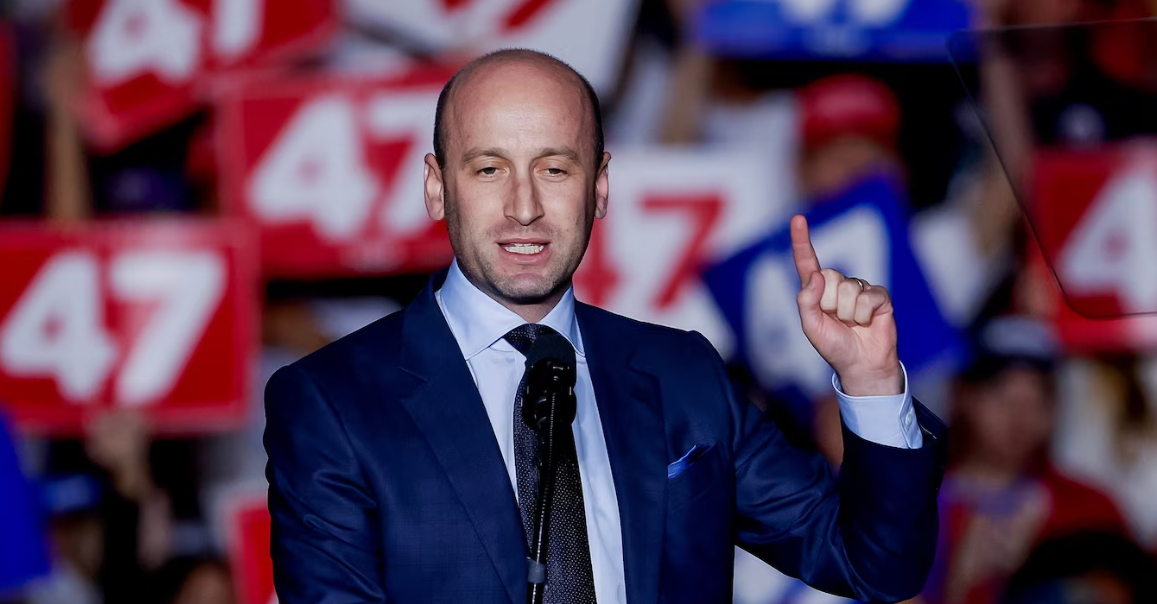Trump Immigration Adviser Stephen Miller Urges House Republicans to Cut Funding for Sanctuary Cities, States Like NY to Beef-Up Border Security
On January 15, 2025, Stephen Miller, a senior adviser to President-elect Donald Trump, met with House Republicans to outline key immigration priorities for the incoming administration. Miller called on lawmakers to aggressively target sanctuary cities by cutting their federal funding and to strengthen immigration enforcement nationwide. His remarks highlight the Trump administration’s determination to revive and expand its first-term immigration policies.
Targeting Sanctuary Cities
Miller’s primary focus was on sanctuary jurisdictions—cities and states that limit cooperation with federal immigration authorities. He urged Congress to prioritize defunding these areas, arguing that such policies undermine national security and public safety. According to Miller, jurisdictions that refuse to share information on non-citizen arrests with Immigration and Customs Enforcement (ICE) are “actively enabling lawlessness” and should face financial consequences.
“Federal resources should not subsidize cities that refuse to follow the law,” Miller stated. He also proposed increasing financial penalties for sanctuary jurisdictions while redirecting funds toward border security and immigration enforcement.
Expanding ICE Operations
In addition to targeting sanctuary cities, Miller advocated for a significant expansion of ICE operations. He proposed increasing the number of ICE agents to facilitate mass deportations of individuals with criminal records. “Every law-abiding American deserves to live in a safe community,” Miller said. “That cannot happen if sanctuary cities and weak enforcement policies allow dangerous individuals to remain in our country.”
Republican Support
Miller’s proposals have gained traction among House Republicans, particularly within the Republican Study Committee (RSC). RSC members pledged to work closely with the incoming administration to enact these measures. The committee’s leadership expressed a strong commitment to restoring border integrity, reducing illegal immigration, and prioritizing American citizens in all immigration policies.
Rep. Jim Banks (R-IN), chairman of the RSC, stated, “Stephen Miller has laid out a clear vision for immigration reform, and we are committed to making that vision a reality. Sanctuary cities will no longer be subsidized by hardworking taxpayers.”
Legislative and Executive Strategies
While the Democrat-controlled Senate previously blocked efforts to cut funding for sanctuary cities, the incoming Republican majority in both congressional chambers is expected to support Miller’s agenda. Budget reconciliation processes may allow these measures to pass with a simple majority, avoiding filibuster hurdles.
In addition to legislative efforts, Miller indicated that President-elect Trump plans to issue executive orders to address border security immediately after taking office. These orders could include reinstating the “Remain in Mexico” policy, fast-tracking deportation hearings, and increasing scrutiny of visa applications.
The Financial Stakes
The debate over sanctuary city funding has become a flashpoint in the broader immigration debate. According to recent reports, the federal government has directed hundreds of millions of dollars to support migrant services in sanctuary cities like New York City. Critics argue that this funding could be better utilized for border security and immigration enforcement.
Miller emphasized the financial burden sanctuary policies place on taxpayers, stating, “These policies are not only dangerous but extraordinarily costly. It’s time to put American citizens first and stop funding lawlessness.”
Broader Implications
Miller’s push to defund sanctuary cities reflects a broader strategy to reshape the nation’s immigration system. The Trump administration’s second term is expected to focus on reducing illegal immigration, strengthening border security, and enforcing existing immigration laws. Supporters argue these measures will enhance public safety and restore confidence in the rule of law.
However, opponents have criticized the proposals as overly punitive and likely to strain relationships between federal and local governments. Immigration advocates warn that defunding sanctuary cities could lead to legal challenges and exacerbate tensions in immigrant communities.
Looking Ahead
As President-elect Trump prepares to take office, his administration’s immigration policies are poised to dominate the national agenda. With strong Republican support in Congress and a clear mandate from voters, Trump’s team appears ready to deliver on its promises to prioritize border security and hold sanctuary jurisdictions accountable. Whether these measures will lead to lasting reforms or further political divisions remains to be seen.

